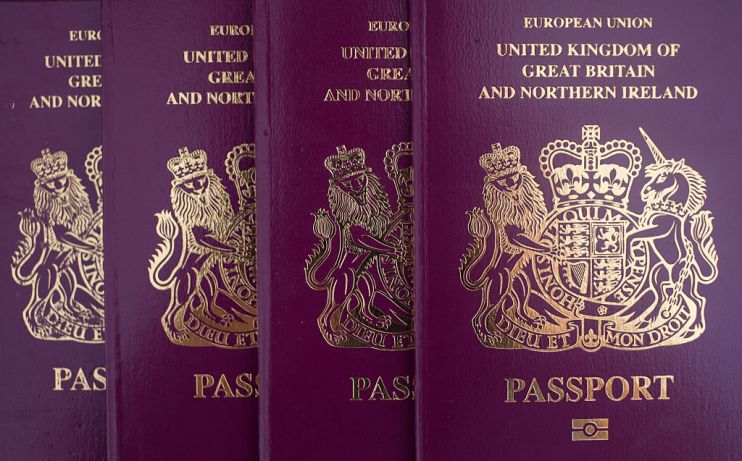UK government will ‘help facilitate’ vaccine passports, says minister

The UK government will “help facilitate” vaccine passports with other countries as part of plans for Europe to return to normality, the Foreign Office minister has said.
The Times reported this morning that British officials have started working on an official certification system after Greece said it would waive quarantine rules for tourists able to prove they have received a Covid vaccine.
Foreign Office minister James Cleverly refused to rule out the plans, telling BBC Radio 4’s Today programme: “The decisions that individual countries make about their own incoming arrangements are up to them… It is often the case that the entry requirements for countries [include] vaccines and inoculations — that is not an uncommon practice.
“We will work with international partners to help facilitate their border arrangements and immigration requirements.”
Former health secretary Jeremy Hunt said the vaccine passports were a “very sensible policy” and that other countries had shown how such schemes can work.
“I think it is a very sensible policy and I know that the government is looking at how that might work,” the former health secretary told BBC Radio 4’s World At One.
Greece this week became the latest country to suggest it will lift current border restrictions for visitors able to prove they have been immunised, with Prime Minister Kyriakos Mitsotakis telling Reuters he was “cautiously optimistic” of a lucrative summer.
Nordic news
Both Denmark and Sweden have announced plans to introduce digital vaccine certificates to kickstart tourism back into action after almost a year of hibernation.
The Swedish government said it hoped to implement vaccine passports by June, and would work to make the national certificates compatible with international certificates being discussed by both the World Health Organisation (WHO) and the EU.
“With a digital vaccine certificate it will be quick and easy to prove a completed vaccination,” Anders Ygeman, Sweden’s minister for digital development, said in a statement.
Denmark earlier this week said it would initially publish an online registry of people’s vaccination statuses by the end of February while it develops a long-term solution.
Subsequent vaccine passports likely involve certificates on people’s mobile phones, with the potential for other details, such as whether a person has tested positive for antibodies, to be added later, according to the Financial Times.
“It is absolutely crucial — for us to be able to restart Danish society — that companies can get back on track,” said acting finance minister Morten Bodskov, adding that vaccine passports would “contribute to a gradual, sound and appropriate reopening of Denmark”.
Data concerns
But the head of the UK’s data privacy watchdog last month warned MPs that Covid-19 immunity passports could come with privacy concerns.
Elizabeth Denham told the Digital, Culture, Media and Sport (DCMS) sub-committee on online harms that vaccine passports would allow the tourism industry to reopen, but said any such scheme would face substantial questions over the sharing of health data.
“We would approach a detailed proposal around a vaccination passport or a freedom passport in the way that we do any initiative. That is: is it necessary; does it work; does it do what it says on the tin; is it proportionate; and is there transparency?” she told MPs.
“I think with immunity passports, some of the issues are beyond data protection,” she added. “They touch on human rights, they touch on whether or not we’re going to create a two-tier society based on whether you have a jab in the arm, and the concerns over whether or not this is ‘identity by the back door.’”
But businesses have urged ministers to push on with plans. Gus Tomlinson, general manager at data intelligence firm GBG told City A.M: “The government can’t sit and rest on its laurels… There’s an urgent need to make the Covid passport trial a reality, and quickly, to ensure this confidence translates into action. We need to follow Denmark’s lead and give businesses and citizens alike the confidence to get moving again.
“As a nation, we’ve been far too reluctant to embrace the opportunities offered by digital identity systems, but now is the time to throw off those old doubts and invest in a system which will help make the whole world simpler, safer and more secure.”